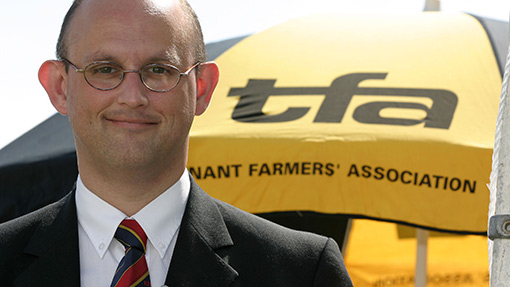15 things pivotal to the future of family farms

The CEO of the Tenant Farmers Association, George Dunn, has shared 15 suggestions for farmers, government and the wider industry that he thinks will be pivotal for the continued success of family farms.
Speaking at the Family Farmers’ Association’s open meeting on 21 October, he added that it was important that such farms continued to exist alongside the larger operations and that the people who ran them were “passionate individuals, committed to what they do”.
See also: Plan for farming family business risks
Five suggestions for the farmer:
- Write everything down. There have been many times he has seen farming businesses fall apart because of a lack of understanding about the business and its operations. The rights and responsibilities of individuals and the farming structure all need detailing. This makes things easier at those important times of change, be it death and bereavement or marriage, or times of financial difficulty.
- Think about and plan for succession.
- Value your family, or unpaid, labour. The professional development of these individuals needs consideration. They are your future as well as your present. Have they had the opportunities they need to access training or placements? There are plenty of opportunities out there, such as the Nuffield scholarships, for employees to better themselves, which is important to both the individual and the business.
- You need to be involved in communities. This includes positions such as parish councillor, county councillor, school governor, church warden. “The older generation have been good at this but the younger farmers aren’t so much. And then they moan incessantly when decisions are taken, like agriculture being removed from the curriculum or planning decisions that don’t go their way,” said Mr Dunn.
- Think about your costs. Benchmarking is a very important tool in farming. Share information about your business with like-minded people you trust.
Five suggestions for the government:
- Let’s stop the rhetoric about Pillar 1 payments going. While the TFA has supported a cap of €300,000, which it claims would only affect 176 people or corporations in this country, Mr Dunn explained that they are in no doubt that these payments are essential in cushioning the effect of volatility in market prices.
- We need to deal with short-term farm business tenancies. The average length of term of an FBT now is four years (excluding rolling-term tenancies), so there needs to be a look at methods for an extension of FBT terms. One solution would be to change the tax incentive on letting land. Currently, landlords who let land are given 100% tax relief. However, if they have to let the land for 10 years to get that tax relief then there will be longer term FBTs available.
- Awareness is needed around the impact of tariffs and quotas on land rents. While anaerobic digestion (AD) is a great technology, it is one of the factors contributing to high land rents – currently up to £300/acre for sugar beet and maize, pushing many farmers out of that rental market. While this is good for sugar beet growers who will be faced with quotas next year, if Feed-in Tariffs are removed it would help to bring down rents.
- Dealing with disenfranchisement. Organisations such as Natural England and The Rural Payments Agency should be using family farmers as “a repository of information” to exploit the wealth of knowledge they have.
- Going digital. The government must realise that not all family farmers are ready to go digital on all systems yet. Lots of farming families are not computer literate. They are skilled in many ways – they need to be a jack of all trades and a master of all trades – but IT may not be one of those skills yet, Mr Dunn said.
Five suggestions for the industry:
- Individuals need to stop bidding at exorbitant rates for rent. This industry plays a part in the high rental prices, as well as factors such as the use of land for AD. There used to be about 40 people who would bid exorbitant land prices and now there are just four or five, but this needs to stop. And farm consultants need to advise their clients against it.
- Tenant farmers must not be treated like second-class citizens. “Too many times have I seen a land agent or a landlord treat the tenant like a second-class citizen, then just walk out of the kitchen and leave the tenants in turmoil,” said Mr Dunn.
- Processors and retailers need to play fair. They’re often ready to use the values behind family farming as an advertising point, but they must in turn monetise that and pay family farmers fairly for produce.
- “We can do more to brand our products and AHDB is key to this”. Mr Dunn gave the National Trust’s Fine Farm Produce Awards as a leading example: “People will buy it because they can see the farming values behind it,” he said.
- Co-operation. “This has been a filthy word in the industry for many years,” said Mr Dunn, but he explained that he sees it as crucial to the development of family farming businesses. While you will often see farmers rally round to help when another is in crisis, you don’t see this when things are going well. “We need to be proactive, not just reactive,” he concluded.
See more
